The Nuclear Shield of The USSR - Remains of The Old Power...
Hello, friends!
This is one of those rare cases when I just adapt material. It seemed to me that this post, which I read on the news site of our city, will be interesting to you.
Enjoy your reading... despite my English :)
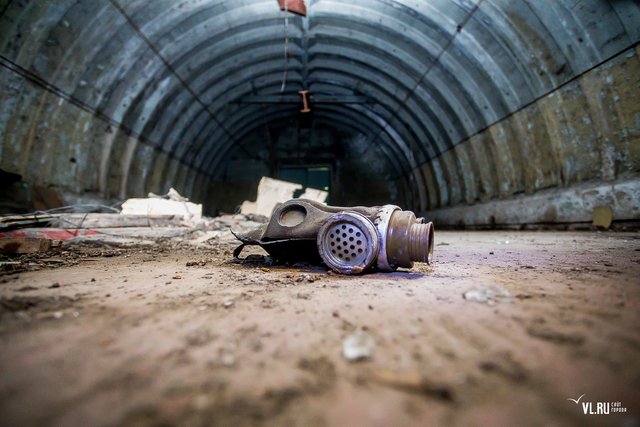
250 kilometers from Vladivostok are abandoned mines of medium-range ballistic missiles R-14U. In the 1960s, it was part of the USSR's nuclear shield in the Far East. In 1970, the missile regiment was transferred to Ukraine and the silo launchers were no longer used as intended. In the late 1990s, the area remained completely abandoned and subsequently became a favorite destination for black metal hunters and diggers.
The abandoned territory is of primary interest from the point of view of military history. During the Cold War, under Arseniev city, a silo launcher for group launch of type 8P765 "Chusovaya" was built. There were many similar objects throughout the USSR: in Ukraine, the Caucasus, Belarus, Central Asia and the Baltics. In Primorye, the mine-launcher set to combat duty in 1965. Here, not far from the Novosysoevka village, the 571st Regiment of the 45th Division of the Strategic Missile Forces was based.
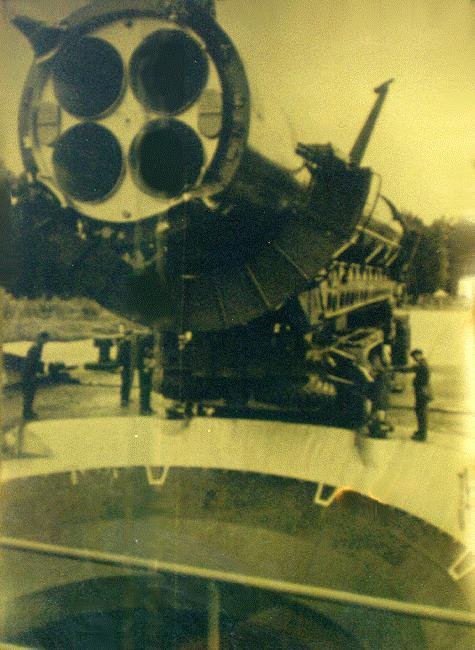
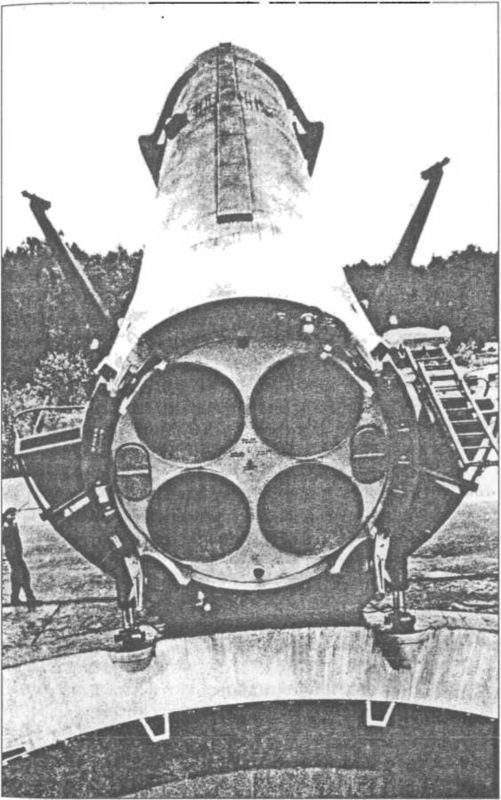
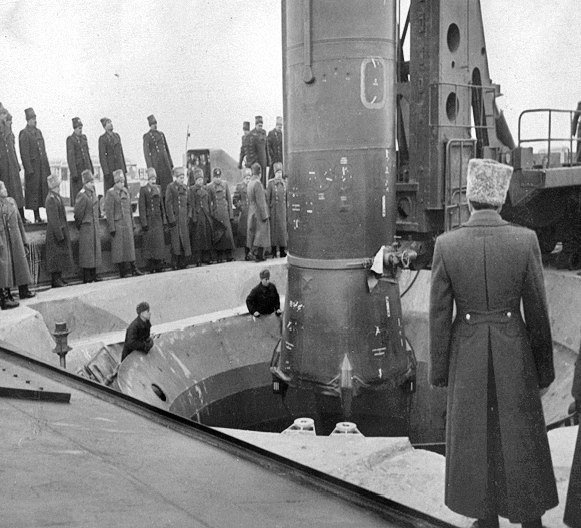
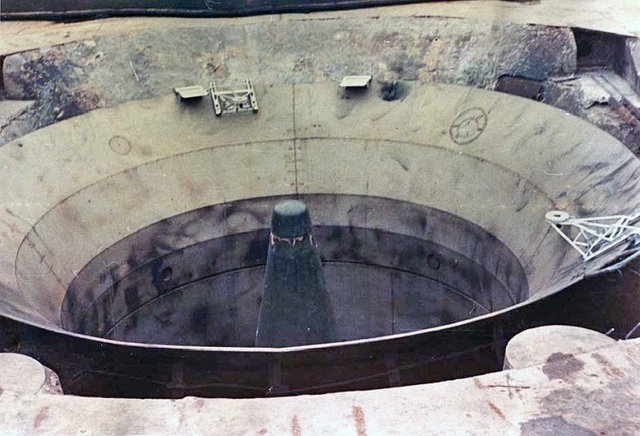
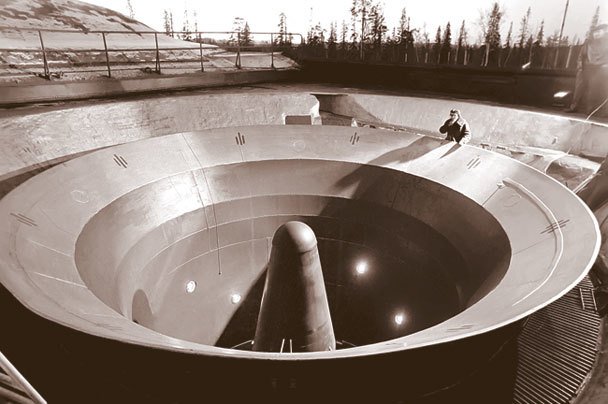
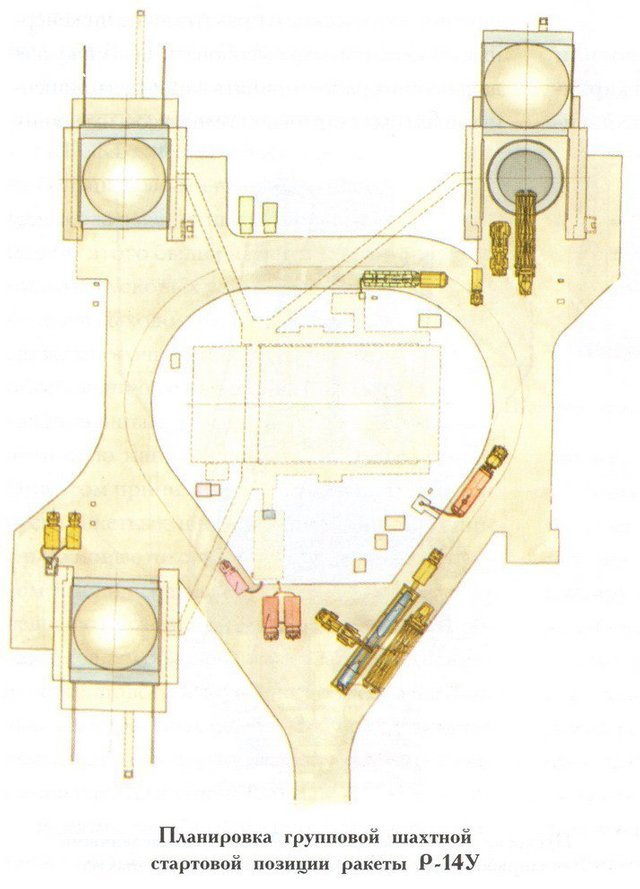
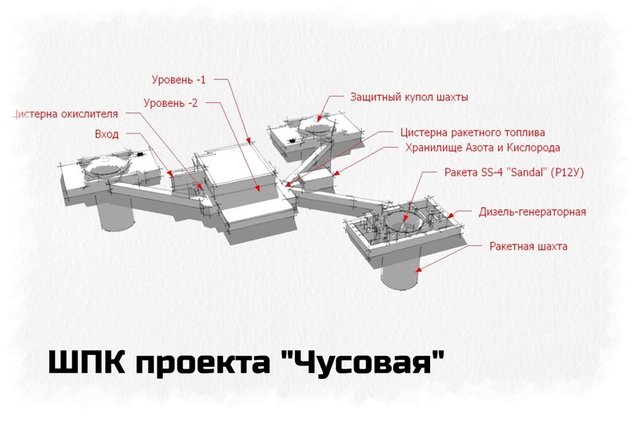
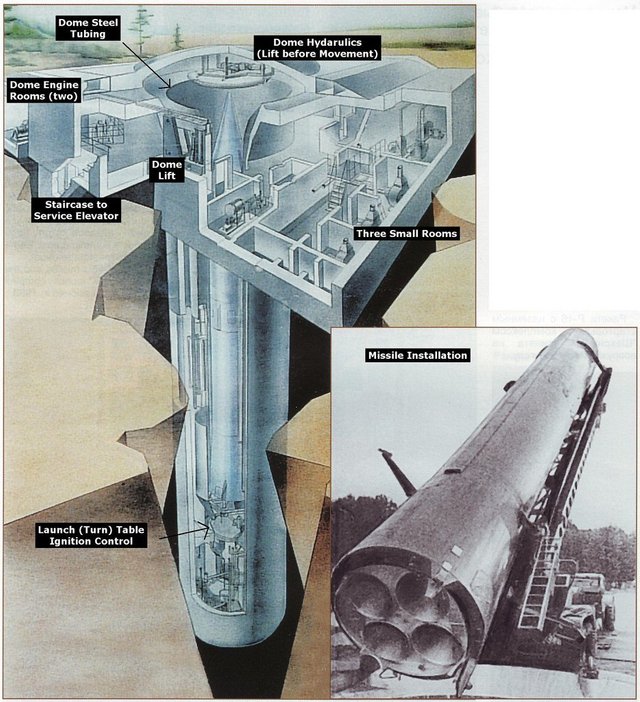
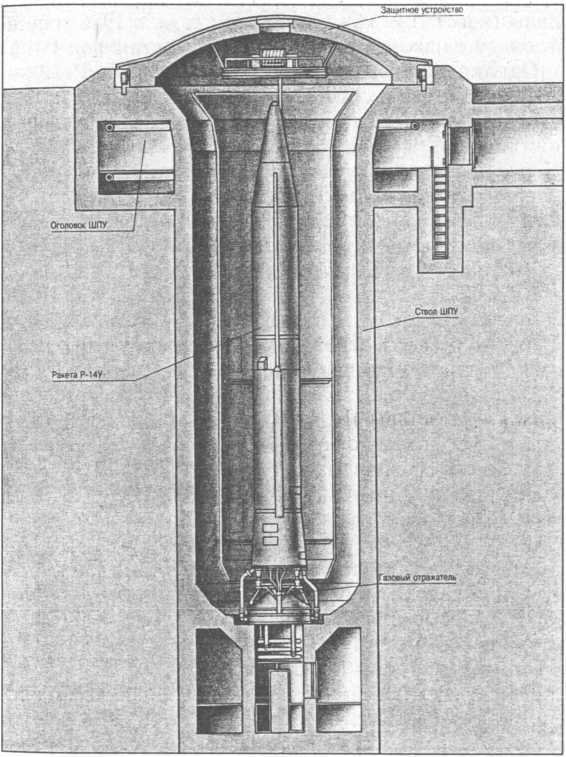
In service were single-stage ballistic missiles R-14U. With this USSR could hit any target at a distance of up to 4500 km. For example, in the radius of defeat there were American bases of the US Navy and Air Force on Guam and Okinawa. In those times, the R-14U missiles can guaranteed the destruction of this bases in the event of a war between the two Superpowers.
The project of the launcher of the group launch "Chusovaya" was follows: the location of the three mines resembled a triangle, the distance between the rocket launching points was 70-80 m, and between the starting positions there was a command post and residential premises, where was the Operators and Tech Services.
The missile mines themselves represent a kind of wells with a depth of more than 30 m. In them, when the military unit was still functioning, there was a steel "tubes" with a diameter of 4-4.5 meters. During the loading into it, the machine-installers 8U224M on the basis of the uniaxial tractor MAZ-529V launched weapons of mass destruction. When the missile was already in the mine, it was filled with fuel from transport tanks and the nuclearhead was attached. After that, the mines were closed with a multi-ton concrete dome, capable of protecting against an air strike and even a nuclear explosion with a capacity of 1 MegaTon at a distance of 2000 meters. Now only two domes have been preserved, the third partially destroyed by vandals.
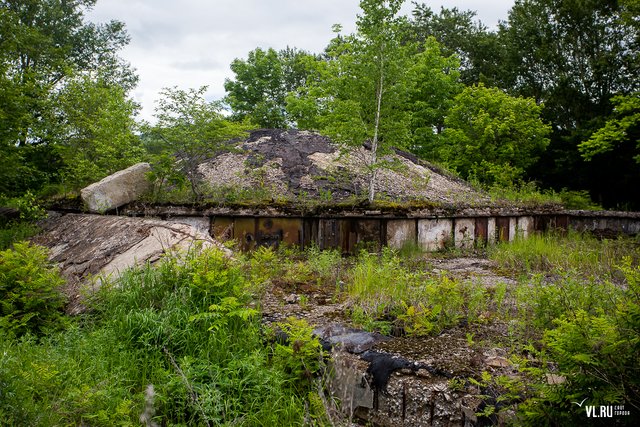
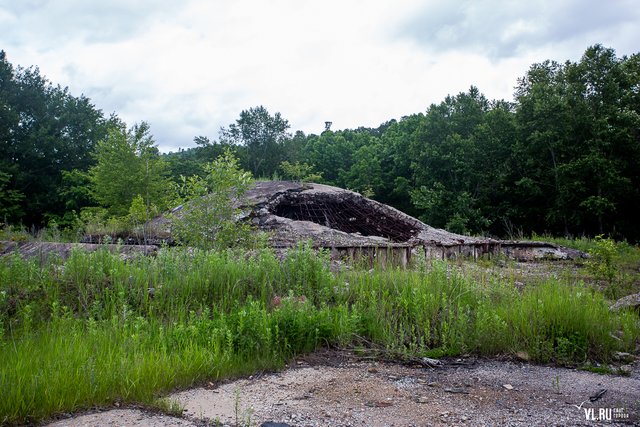
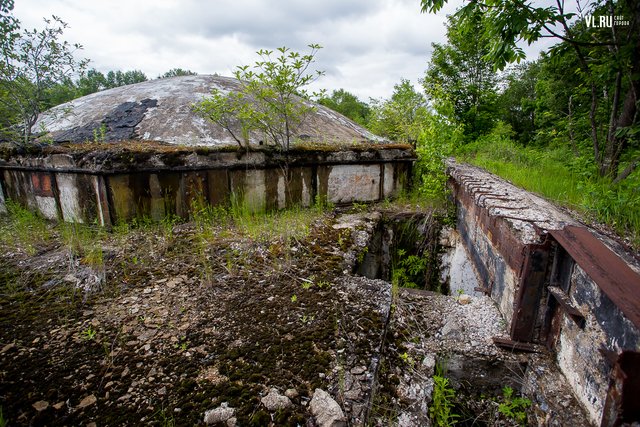
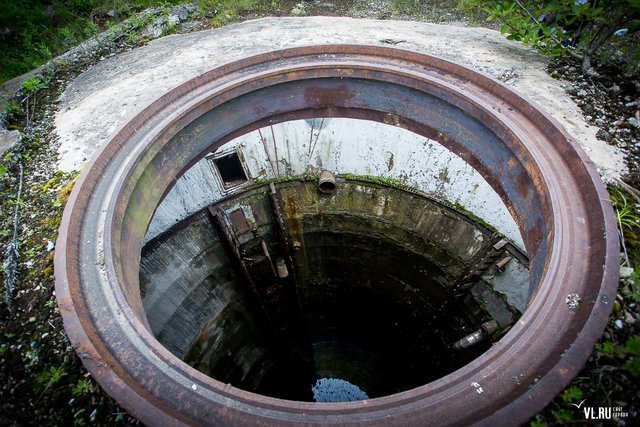
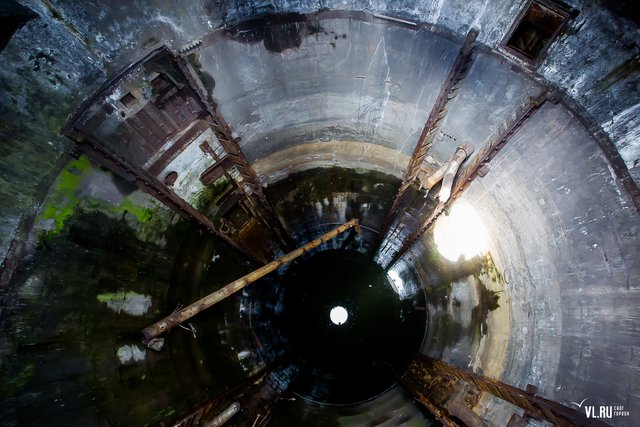
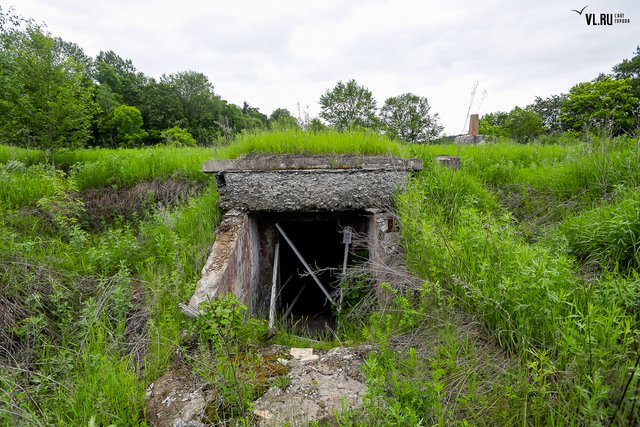
The military unit functioned until 1970. Then the 571st Regiment was removed from combat duty in Arsenyev and relocated to Ukraine in the Khmelnytsky region, where it was rearmed with UR-100 missiles.
Now it is very easy to get to this territory. The old rusty gates are open. At the post, where a few years ago there was a guard - no one. In the old entries of the watch - 2012 year.
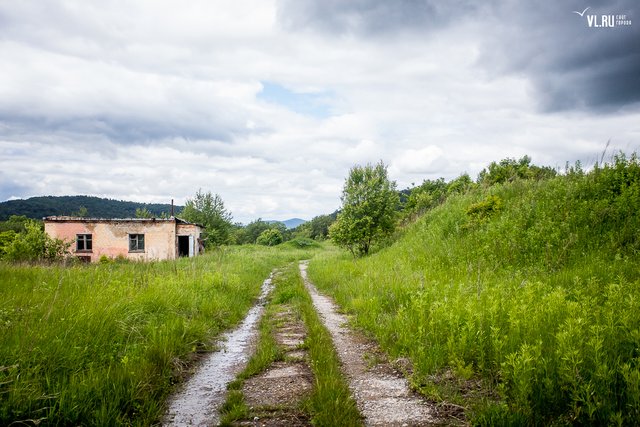
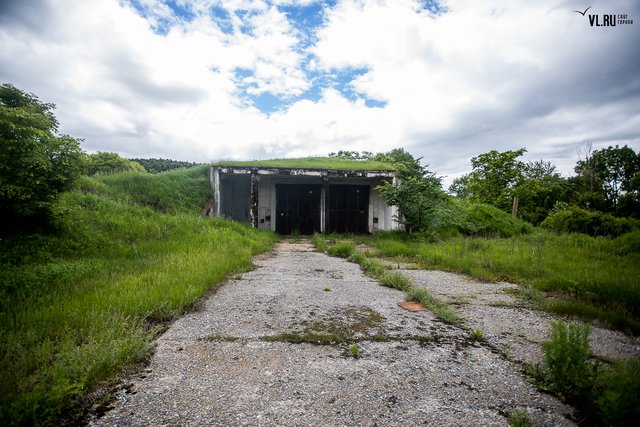
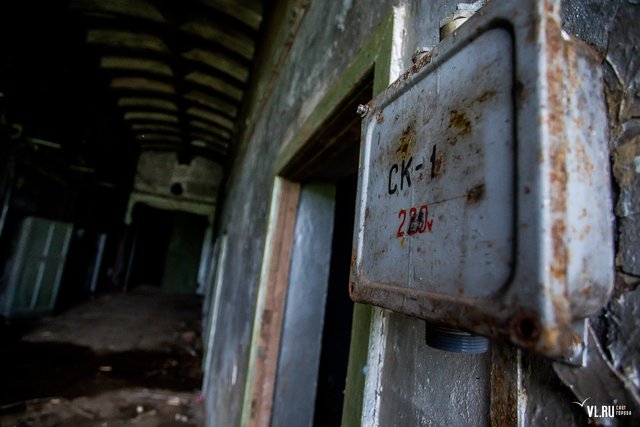
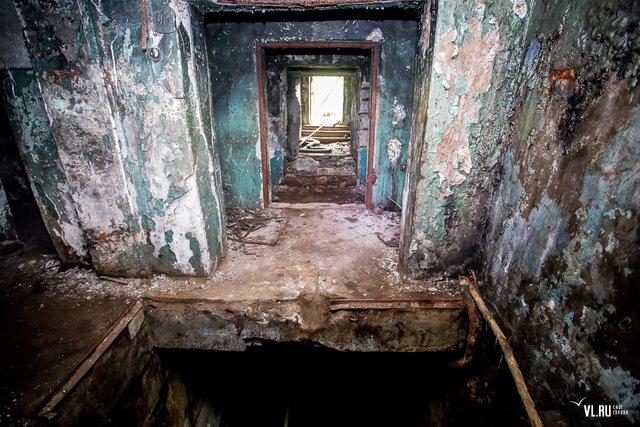
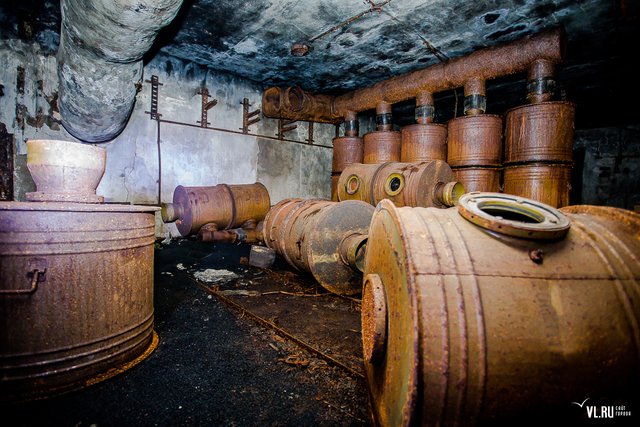
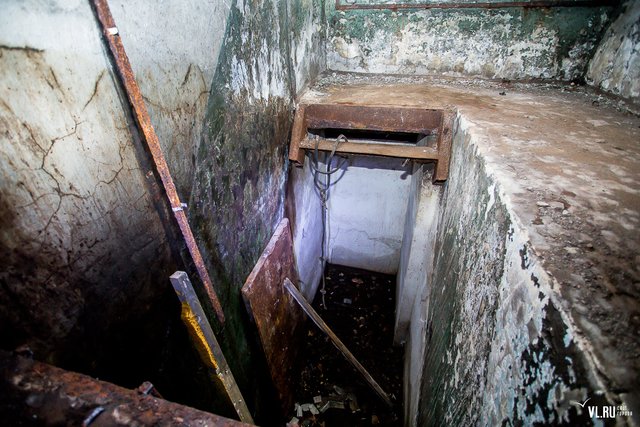
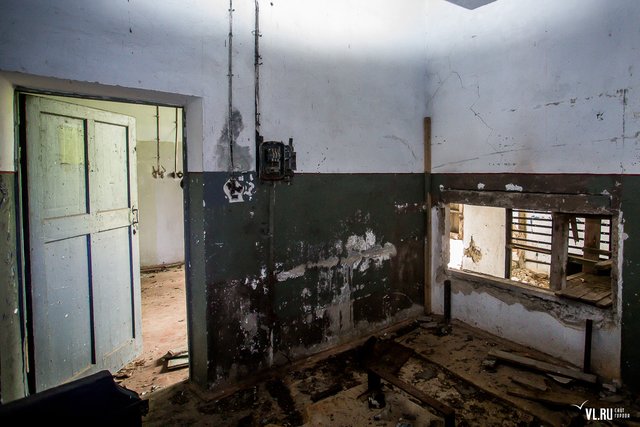
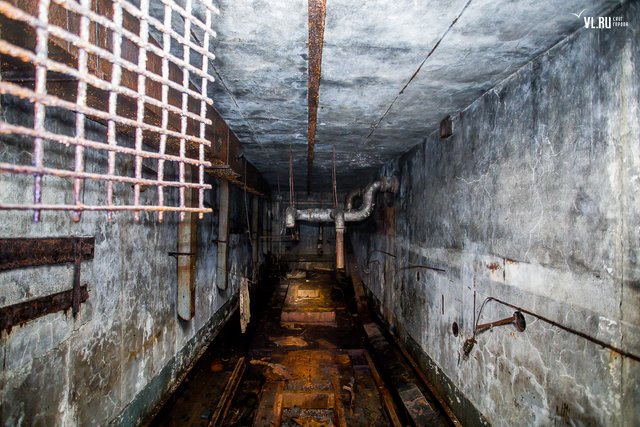
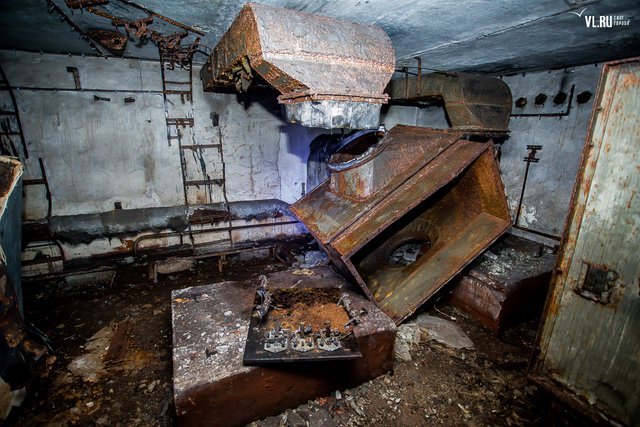
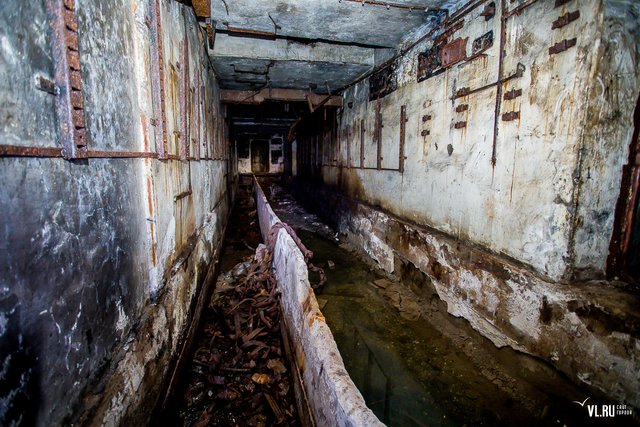
Gloomy corridors reach a length of up to 70 meters, the stairs to the lower levels are sawn and plundered by vandals. Overlaps have long since collapsed. Among the things that remained intact on the territory of the former command post are vent pipes, air purifiers, and also housings from distribution cabinets.
But best of all on the cracked and moldy walls, preserved the inscriptions about the observance of safety precautions, drawn in red "USSR" paint...
Sincerely, Terry Craft.
Source: 1
What a power SSSR was. Shame they spent 90% of their budget on millitary equipment and research while at the same time NATO countries spent few percents on it. Imagine if SSSR went to step-by-step dissolution and whole of Warsaw pact. Workers become major share-holders in the state-run companies market economy. There would be no tycoons and gangsters who robbed the entire communist hemisphere after it's fall.
Sad but true...
To paraphrase your response, "What a power NATO was. Shame they spent 150% of their budget on millitary equipment and research and foreign conquest while at the same time forrner Soviet countries spent few percents on it. Imagine if NATO went to step-by-step dissolution and whole of The West. Workers become major share-holders in the publicly traded companies' market economy. There would be no oligarchs and banksters who robbed the entire chrony-capitalist regime after it's fall."
If we all had working crypto 50 nay a 100 years ago we wouldn't have had WWII ;) If..
Very fascinating content!
I agree!
I did not know the silos could survive nuclear explosion. Cool stuff!
A well written documented article of USSR weapon of mass destruction. My only hope is that it will not destroy the region or enter the hands of terrorists as most people there are corrupt and think only about making money. Good post, following you for more and upvoted.
@terrycraft - LIVE!
Upvote :)))
Wow that's amazing, Great work:)
Did you visit this place.You must be a history lover.Good one keep posting these good stuff friend.
I myself only found out about this place ... As soon as I can, I will definitely go!
Some of these photos are kind of creepy. What do you mean by adapt content?
Editing for the preparation for translation and the translation itself.
Wow, those are some ghostly images of the rooms and corridors. Those places are so interesting, mystifying, and even creepy. A question: How does a concrete dome capable of withstanding a nuclear explosion get damaged by vandals?
Time and weather, for about half a century have already done most of the work, and the jackhammers are finished...
Amazing!!! The place actually looks creepy!!
Stalker style :)
There's a lot of places in Russia in that style))) When i travel across the country i find many places that reminds me about Stalker and Fallout)))
Yes, outside the Moscow third transport ring )
Creepy but nice, I believe there are lots of places like this that has been left from the war. Also chernobyl.